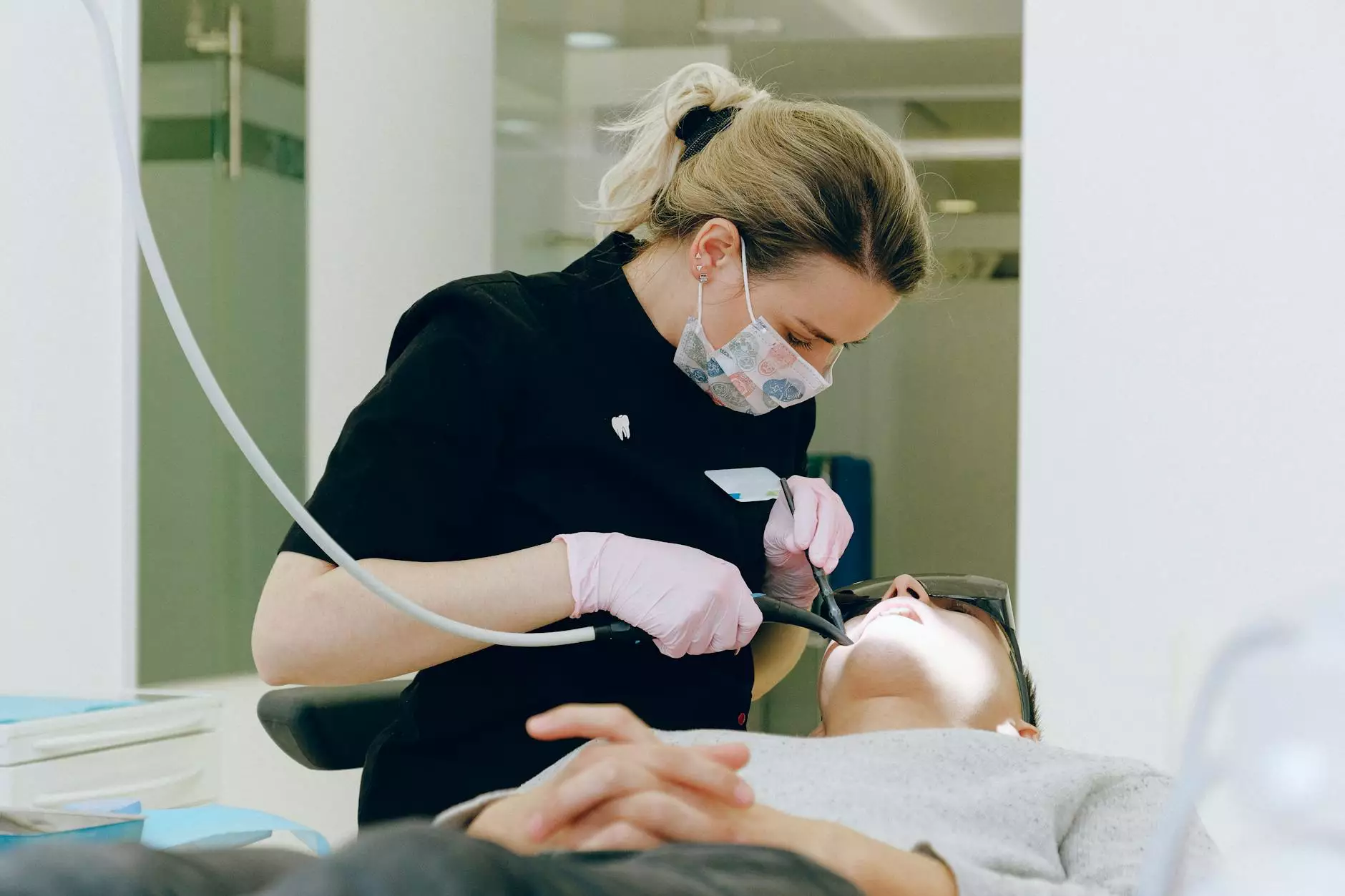Transform Your Smile: The Ultimate Guide to Porcelain Veneers

Understanding Porcelain Veneers
Porcelain veneers are ultra-thin shells of ceramic that are custom-made to fit over the front surface of teeth. Their main purpose is to enhance the appearance of teeth, providing a natural, beautiful smile. This dental innovation is a popular choice among those looking to improve their aesthetic appeal without extensive dental surgery.
What are Porcelain Veneers Made Of?
Porcelain is a durable material that mimics the natural appearance of tooth enamel. It has a translucent quality, allowing light to pass through, thus creating a more seamless look compared to traditional dental materials. The composition of porcelain veneers not only gives them a natural appearance but also provides resilience and longevity.
Benefits of Porcelain Veneers
Choosing porcelain veneers comes with a plethora of benefits, making them an ideal cosmetic dentistry option. Here are some key advantages:
- Natural Appearance: The translucency of porcelain ensures that the veneers look almost identical to natural teeth.
- Stain Resistance: Porcelain is highly resistant to stains, maintaining the brightness of your smile over time.
- Durability: With proper care, veneers can last over a decade, making them a worthy investment.
- Minimal Tooth Alteration: Unlike crowns, veneers require less alteration of the natural tooth structure.
- Versatility: They can fix a variety of cosmetic issues, including gaps, chips, and discoloration.
The Process of Getting Porcelain Veneers
The journey to a new smile with porcelain veneers consists of several manageable steps, each crucial to ensure the best results.
Initial Consultation
During the initial consultation, you will meet with a qualified cosmetic dentist. This is a crucial step where your dentist will evaluate your oral health, discuss your aesthetic goals, and determine if veneers are the right option for you. X-rays or dental impressions may be taken to help plan the treatment.
Creating a Customized Treatment Plan
After assessing your dental condition, your dentist will develop a customized treatment plan tailored to your specific needs. This may include selecting the shade of your veneers to ensure a natural-looking result.
Preparation of Teeth
For most patients, receiving porcelain veneers requires the removal of a small amount of enamel from the front surface of the teeth. This is necessary to allow for a proper fit of the veneers. A local anesthetic may be administered to ensure comfort during this procedure.
Temporary Veneers
Once your teeth are prepared, your dentist will take impressions, which will then be sent to a dental laboratory to create your custom veneers. In the meantime, temporary veneers may be placed to protect your teeth and maintain aesthetics.
Application of Porcelain Veneers
When your permanent veneers are ready, you'll return to your dentist's office for application. The temporary veneers are removed, and your new porcelain veneers are carefully bonded to your teeth using a special dental adhesive.
Follow-Up Care
After the application, your dentist may schedule a follow-up appointment to ensure everything is functioning well. Proper care involves regular dental hygiene practices and routine dental check-ups to maintain your veneers.
Comparing Porcelain Veneers to Other Cosmetic Options
When considering cosmetic dentistry, options such as whitening, bonding, and crowns may come up. Here’s how porcelain veneers compare to these treatments:
Vs. Teeth Whitening
Teeth whitening is effective for discolored teeth but may not provide the same level of transformation as veneers, which can correct shape and size as well as color.
Vs. Dental Bonding
Dental bonding involves applying a composite resin to teeth and can be a quicker, less expensive option. However, bonding is generally less durable and may stain over time compared to porcelain veneers.
Vs. Dental Crowns
Crowns cover the entire tooth and are used when there is significant damage. Porcelain veneers, on the other hand, are less invasive, requiring minimal enamel removal, and are primarily cosmetic.
Cost of Porcelain Veneers in Turkey
The cost of porcelain veneers can vary widely based on several factors, including the dentist's expertise, the number of veneers required, and geographic location. In Turkey, however, dental treatments often come at a more affordable price compared to Western countries, without compromising on quality.
At Turkey Dental Clinic, patients can expect competitive pricing and exceptional care. Assessments and consultations are crucial in identifying the total cost of treatment. On average, the price per veneer in Turkey can range from $200 to $500, often inclusive of consultations and follow-up visits.
Maintaining Your Porcelain Veneers
Once you have your porcelain veneers, maintaining them is essential to prolong their lifespan and ensure they remain in top condition. Consider the following tips:
- Regular Dental Check-ups: Schedule routine visits with your dentist for cleanings and checks on your veneers.
- Good Oral Hygiene: Brush twice daily and floss regularly to maintain gum health.
- Avoid Hard Foods: Be mindful when eating hard foods that could potentially chip your veneers.
- Limit Staining Foods: Although porcelain is stain-resistant, it’s wise to limit consumption of highly staining foods and beverages, like coffee and red wine.
Conclusion: Is Porcelain Veneer Right for You?
In conclusion, porcelain veneers are a transformative option for those looking to enhance their smiles. With their natural appearance, durability, and ability to address a range of dental aesthetic issues, veneers can be an excellent investment in your self-confidence. If you are contemplating getting veneers, a consultation at Turkey Dental Clinic can provide you with personal insights and answers to all your questions.
Don't hesitate to reach out and start your journey to a stunning smile—because the best beauty is one that brings out your confidence and happiness.









